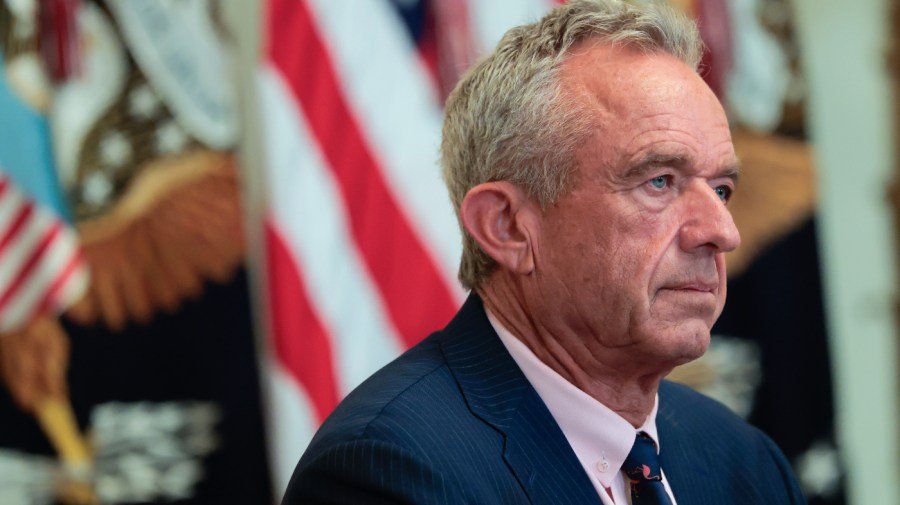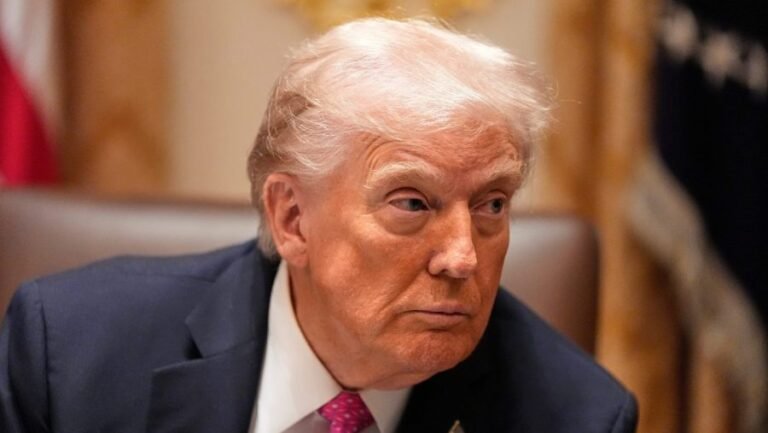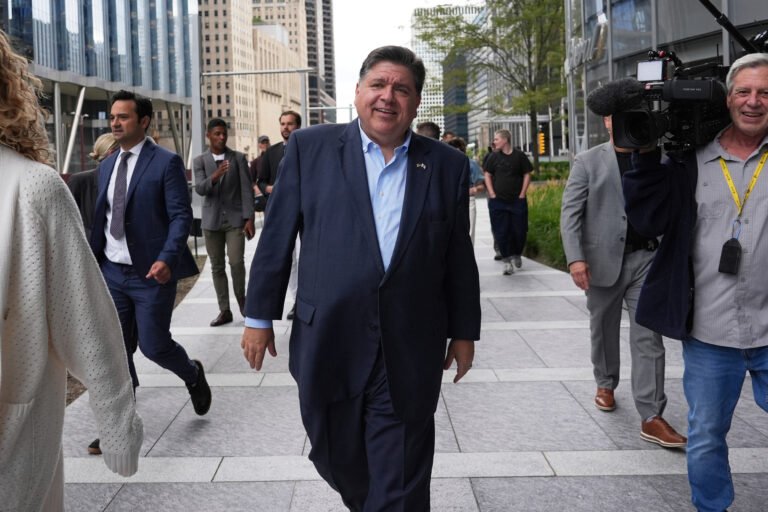
The famous thumbs-down by Sen. John McCain (R-Ariz.) in 2017 resulted in the notorious failure to repeal and replace the Affordable Care Act. Subsequent legislative attempts also crashed and burned, teaching Republicans the importance of discretion in their efforts to sabotage that law.
Consequently, both congressional Republicans and Health and Human Services Secretary Robert F. Kennedy Jr. have instead turned to subtler tactics to undermine the Affordable Care Act’s impact.
Mark Twain once quipped that history does not repeat itself, but it often rhymes. The U.S. once again finds itself in a period of health insurance rescission amid unified Republican control of government, though there are key differences from 2017.
The Affordable Care Act now enjoys not only record enrollment of 24.3 million people in marketplace plans, but also record high approval of 66 percent, according to the June Kaiser Family Foundation tracking poll.
In light of this popularity, as well as political scientist David Mayhew’s characterization of members of Congress as “single-minded seekers of reelection,” it is hardly surprising that congressional Republicans’ preferred strategy has transitioned to subverting the act’s progress.
They have done so by undercutting enhanced subsidies and dismantling the Advisory Committee on Immunization Practices and the U.S. Preventive Services Task Force.
Under the Affordable Care Act, the recommendations of both of these committees are required to be covered by private health insurance, as well as, in some cases, Medicaid and Medicare. As such, they are critical in safeguarding the nation’s health.
These are but two of the many ways that the second Trump administration is defined by full-frontal assaults on the American public health infrastructure.
The Advisory Committee on Immunization Practices is a federal advisory committee composed of medical and public health experts who formulate recommendations on vaccine availability and eligibility.
Its recommendations carry a great deal of weight, guiding the Centers for Disease Control and Prevention’s adult and childhood vaccination schedule, and ensuring that vaccines are available to children who are underinsured or uninsured through the Vaccines for Children Program.
Vaccine For Children’s origins in the 1993 measles epidemic, and the role of the Advisory Committee on Immunization Practices in recommending vaccines to be covered by the program, bring into sharp relief why it is so critical in mitigating the damage of America’s ongoing spread of measles cases.
The prior outbreak resulted in 55,000 cases, more than 11,000 hospitalizations and 166 deaths. The culprit? Undervaccination, in no small part due the cost of vaccination.
Today, the Affordable Care Act stipulates that insurers shall cover without cost-sharing all vaccines recommended by the Advisory Committee on Immunization Practices, and so must Vaccines for Children.
Nonetheless, online misinformation has initiated a precipitous decline in vaccine coverage, which may have contributed to the U.S. surpassing the most measles cases since the disease was declared to be eliminated in 2000.
Kennedy is undermining the advisory committee’s work by installing anti-vaccine members who were not properly vetted. His actions are a viable path toward eliminating insurance coverage for lifesaving vaccines such as measles, mumps and rubella, which costs around $200 without insurance. This, in turn, will result in more infectious disease outbreaks.
The U.S. Preventive Services Task Force, a national panel of volunteer independent experts, examines which preventive services and medications insurers must cover under the Affordable Care Act with a broader lens. Their task includes the thorough assessment of preventive strategies ranging from cancer screenings to medications that prevent HIV transmission.
The Affordable Care Act’s preventive services mandate recently came under scrutiny in Kennedy v. Braidwood Management. In June, the Affordable Care Act emerged unscathed again in a 6-3 holding that it could constitutionally compel private insurers and Medicaid expansion programs to cover the preventive services recommended by the Preventive Services Task Force.
Unfortunately, the decision also gave Kennedy complete control over the makeup of the task force, leading to his plans to dismiss all of the current serving members.
These no-cost preventive services identified by the Preventive Services Task Force panel are accessed by approximately 100 million people each year. But according to Kennedy, their recommendations are too “woke,” and warrant termination of all members.
Kennedy provided no scientific, policy or economic justification for this action, nor did he bother to define the meaning of too woke, leaving us to guess what might be problematic for him.
Perhaps he objects to Preventive Services Task Force-guided insurance coverage for such critical services as screening for anxiety disorders in adults, including those who are pregnant and postpartum.
Or perhaps it’s biennial mammography for women between the ages of 40 and 74, screening for HIV in adolescents and adults between the ages of 15 and 65 or screening for prediabetes and type 2 diabetes in adults between the ages of 35 and 70 who are overweight or obese.
Preventive Services Task Force recommendations span a broad range of common health conditions with significant health and financial burden for the United States and beyond. They also help to reduce evidence gaps and promote the delivery of accessible, evidence-based medicine.
For all the administration’s expressed concerns about the cost of medical care, they may not have heard the adage that an ounce of prevention is worth a pound of cure.
And while Preventive Services Task Force recommendations have the added bonus of promoting health equity due to the lack of patient financial responsibility for the identified health services, its approach is rooted in science, not ideological agendas.
The Advisory Committee on Immunization Practices and U.S. Preventive Services Task Force are critical in ensuring equitable access to care for preventive services for both infectious and chronic disease management.
But despite their immense impact, they operate less in the public eye and elicit fewer protests and phone calls from Americans who benefit from their guidance than did explicit repeal efforts.
Given Republicans’ repeated failures to undermine the Affordable Care Act through legislative action or litigation, these stealth attempts constitute an effective, though dangerous pathway for Republicans to evade substantial scrutiny when undercutting critical access to affordable medical care for large swaths of the population.
Not all Americans will understand why they can no longer access live-saving healthcare, but they will know they are not being made healthy again.
Miranda Yaver is a political scientist and an assistant professor of Health Policy and Management at the University of Pittsburgh. Elizabeth Jacobs is an epidemiologist and professor emerita at the University of Arizona, and a founding member of the advocacy group Defend Public Health.






